Physics
Sign up for our newsletter
We summarize the week's scientific breakthroughs every Thursday.
-
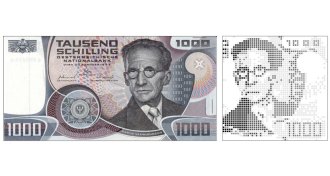 Quantum Physics
Quantum PhysicsQuantum counterfeiters might succeed
Physicists demonstrate security issue with quantum cash.
-
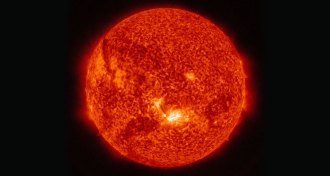 Physics
PhysicsA slowdown at the sun’s surface explained
Light escaping from the sun could slow the spinning of its surface layers.
-
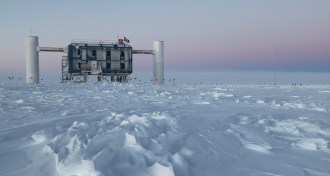 Particle Physics
Particle PhysicsRare triplet of high-energy neutrinos detected from an unknown source
The IceCube Neutrino Observatory spotted three neutrinos within 100 seconds that seem to have come from the same place in the sky.
-
 Particle Physics
Particle PhysicsTriplet of high-energy neutrinos detected from unknown source
The IceCube Neutrino Observatory spotted three neutrinos within 100 seconds that seem to have come from the same place in the sky.
-
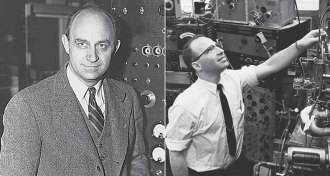 Science & Society
Science & SocietyPhysics greats of the 20th century mixed science and public service
New biographies highlight Enrico Fermi’s and Richard Garwin’s contributions to science and society.
-
 Quantum Physics
Quantum PhysicsReaders amazed by Amasia
Quantum spookiness, shifting landmasses and more in reader feedback.
-
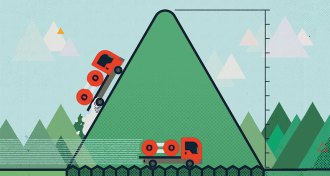 Chemistry
ChemistryNew, greener catalysts are built for speed
Researchers are designing catalysts to move chemical reactions without using precious metals, or at least using less of them.
-
 Physics
PhysicsSound waves could take a tsunami down a few notches
A tsunami’s ferocious force could be taken down a few notches with a pair of counter waves.
-
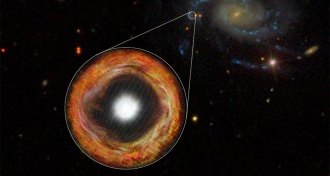 Astronomy
AstronomySupernova spotted shortly after explosion
Early observations of exploding star could indicate that stars become unstable as they near death.
-
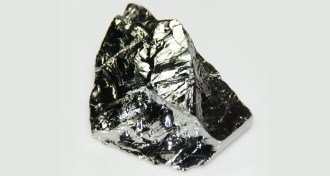 Materials Science
Materials ScienceGermanium computer chips gain ground on silicon — again
Having pushed silicon to its limit, engineers are turning back to germanium.
-
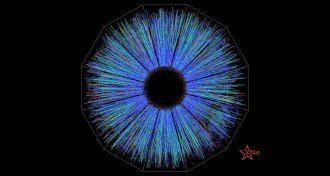 Physics
PhysicsSmashing gold ions creates most swirly fluid ever
Collisions of gold ions create a fluid with more vorticity than any other known.
-
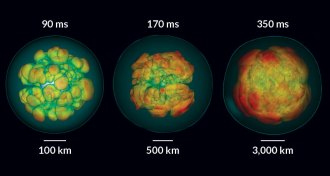 Astronomy
AstronomyWhen a nearby star goes supernova, scientists will be ready
Scientists hope to detect neutrinos and gravitational waves from a nearby supernova.